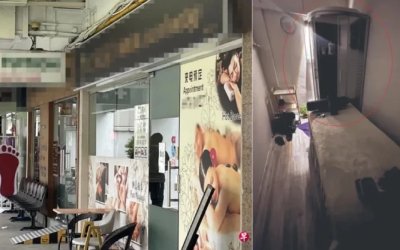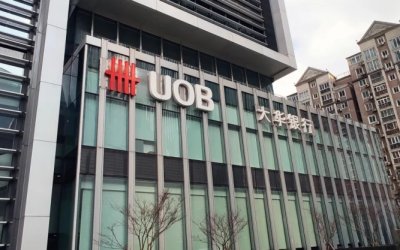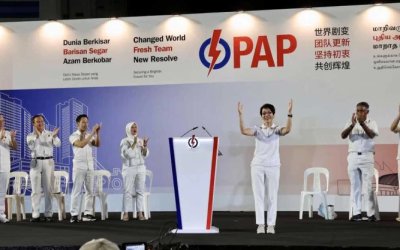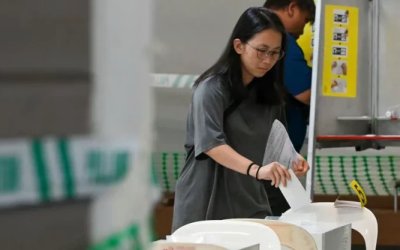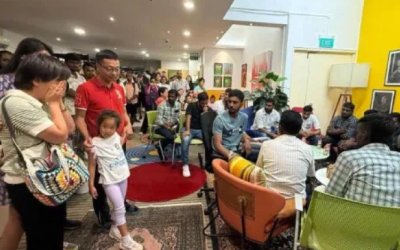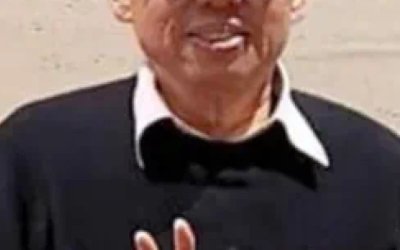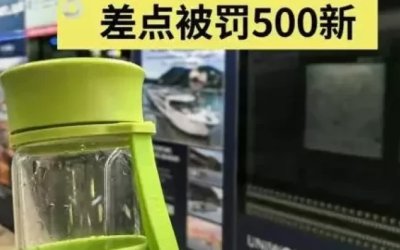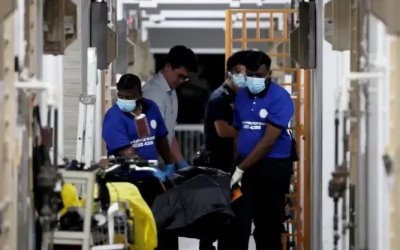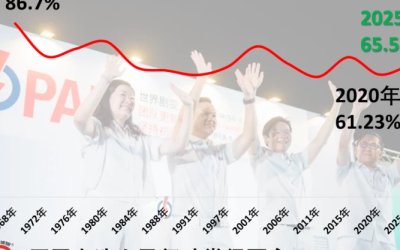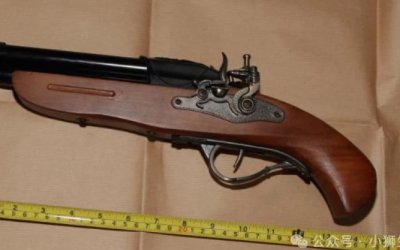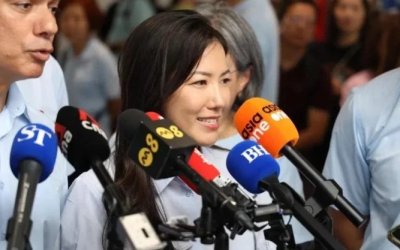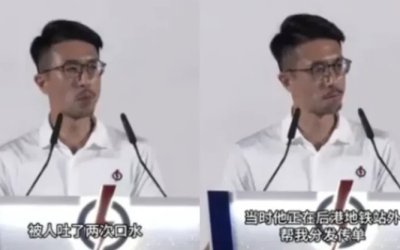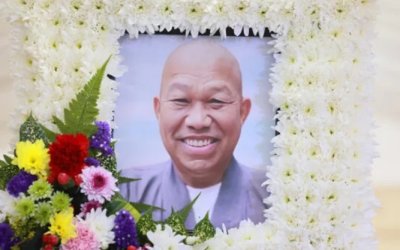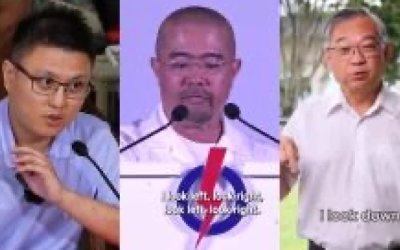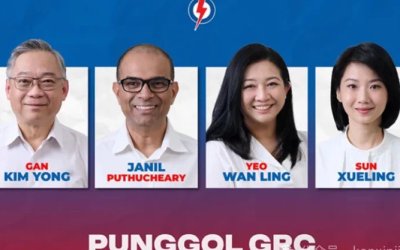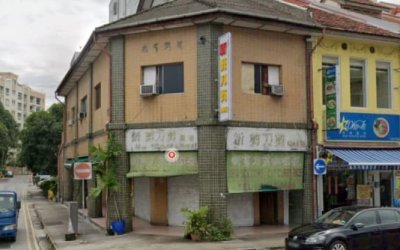Mr Speaker: Assoc Prof Jamus Lim.
Assoc Prof Jamus Jerome Lim (Sengkang): Sir, I had originally posed my two Parliamentary Questions to the Ministry of Foreign Affairs (MFA) before they were redirected to the Ministry of Trade and Industry (MTI). I understand the motivation behind this redirection, but hopeful that the Minister or a Minister from MFA will be able to respond to questions that call for a more foreign policy approach.
Notwithstanding Minister Tan's assertions about the physical sales of Nvidia products being only around 1%, Nvidia's latest filing with the US Securities Exchange Commission states that for the nine months that ended October 2024, the company booked US$91 billion in total revenue, of which a little less than half is domestic; that is, domestic to the US. The next highest source is actually Singapore, with around $7 billion, and it is more than that for China, which includes Hong Kong, at $12 billion. This means that Singapore accounts for around 20% of Nvidia's global revenue.
It is not unusual for entrepôt hubs like us to book such inflated revenue figures, even if our value-added component is small or negligible, nor is this really about fraud, as the Minister seems to allude to, but actually legitimate accounting practices and rules of origin machinations.
Regardless, the headline imbalance invites commercial action, like what we have seen. So, if I may enquire if MFA was aware of these imbalances and if so, is it, in its assessment, that facilitating transshipment trade is positive or negative for the national interest from a foreign policy angle? And relatedly, is there a formal mechanism for MFA to review or provide input to MTI's trade decisions that have inevitable foreign policy implications?
And finally, one question directly for MTI, and given that Singapore is now being placed under Tier Two status by the US, what specific steps will the Government take or plan to take to prevent further downgrades of our status, which could jeopardise our AI hub aspirations?
Mr Speaker: Minister Vivian Balakrishnan.
The Minister for Foreign Affairs (Dr Vivian Balakrishnan): Mr Speaker, Singapore is a transshipment hub, a vital regional and global headquarters for thousands of international companies. Our trade volume is three times our gross domestic product (GDP), and the range of activities that our companies are engaged in, and not just companies owned by Singapore and Singaporeans, but by global owners of these companies, have a regional and international footprint. So, I am not sure what Assoc Prof Jamus Lim is referring to when he says imbalances.
These unique characteristics are par for the course for the unique role that Singapore plays in the global economy. So, for instance, when, as the Member correctly said, Nvidia states in its returns that 22% of sales of chips were booked to entities with operations in Singapore, but my colleague has already explained to the Member only 1% physically came to Singapore and was deployed in data centres here, serving the Government and other major enterprises, including, I should add, hyperscalers. So, there is nothing unusual or unbalanced about that.
The nub of the question really is whether Singapore is being used by these enterprises and companies to evade unilateral export controls. And my colleague has very carefully explained to this House that Singapore, by law, through the Strategic Goods Control Act, gives effect to multilateral export control regimes. He referred to the Wassenaar Arrangement, the Australia Group and the Missile Technology Control Regime. Basically, these are focused especially on weapons or weapons of mass destruction, chemical and biological threats, and other potentially significant dual-use equipment. And these have force of law and we take our reference from the United Nations Security Council.
There are 200 countries in the world. It is possible for 200 countries to promulgate unilateral export measures. We have explained that we are not legally obliged to enforce that unilateral export measures of 200 countries. But we will enforce the multilateral agreed-upon export control regimes.
Having said that, it is not in our national interest to be made use of and for companies who, for whatever reasons, are trying perhaps to evade unilateral export control measures that apply to them, to use their association with Singapore – because people know Singapore is a clean, hygienic, transparent and reputable place – we will not allow them to use that association with us to engage in deceptive or evasive measures to avoid unilateral export measures that apply to them.
The point is the onus is on that company and we will not countenance evasion, deception, false declarations or even mis-accounting; and that we will act on.
And as and when a trading partner comes to us and says, "We have concerns", at that point, we would certainly facilitate investigations or at least, have a deeper look at the data and see whether there is any cause for concern, and we do that in order to protect our own national interest. Specifically for advanced semi-conductor chips. We too have a need for semi-conductors. It is true that we are also part of the global chains that manufacture and export semi-conductors.
But those that are currently manufactured in Singapore are not the H100s, the high-end chips which are used for AI. But we need them for our own purposes and we therefore have to monitor the export regimes of the manufacturers of these chips.
The Member referred to our Tier Two classification. Well, first of all, they call it the AI Diffusion Rule. It was first published near the tail-end of the Biden Administration. In fact, right now, the rules are up for comments and the situation is still evolving. We are not in Tier One, but we are in Tier Two, in good company with about 150 other countries. I do not want to get into detail about the exact number of chips and whether that currently poses a constraint for us. Needless to say, we will continue to engage the major exporting source of these advanced chips to ensure that we have adequate.
And I am sure Members of this House will also be aware, when dealing with sensitive topics like this, it is not in our national interest to compromise our negotiating positions when it deals with strategic items on this score. So, I hope the Member understands that the situation that has arisen is: one, because of our unique role and indeed our successful performance of this unique, global role; and two, the fact that we are a trusted, reliable and honest player.
If you zoom out, beyond chips and export controls, the point is this: Singapore, as a tiny island city-state and a trading hub, we do need to stand in favour of free trade. We do need to play a critical role in global supply chains.
